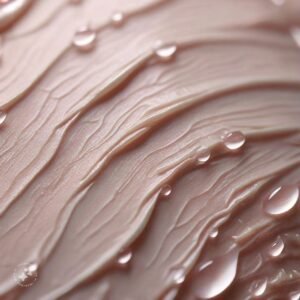What causes Dark Complexion?
Have you ever wondered what causes sudden change in complexion? We’re not talking about naturally black skin here; rather, we’re talking about pale skin that suddenly turned lifeless.
Hyperpigmentation, another name for dark complexion, is a disorder where the skin tone is unusually dark due to an excess of melanin synthesis.

Mechanism:
A complex web of interrelated elements contributes to the pathophysiology of dark complexion, including:
Inflammation
Hormonal imbalance
Genetic predisposition
Nutritional inadequacies
Solar radiation
What are the Types of Hyperpigmentation?
Hyperpigmentation comes in various forms, but the most prevalent ones are sunspots, melasma, and hyperpigmentation after an inflammatory process.
Melasma:
It is thought that hormonal fluctuations are the cause of melasma, which might appear during pregnancy. Although hyperpigmented areas can occur anywhere on the body, the stomach and face are the most common places for them to do so.
Sunspots:
Sunspots are prevalent, often known as liver spots They are linked to prolonged overexposure to the sun. They typically show up as patches on sun-exposed areas like the hands and face.
Hyperpigmentation following inflammation:
This is the outcome of a skin injury or inflammation. Acne is a frequent cause of this kind.
Reasons for Hyperpigmentation:
Inadequate intake of some nutrients (iron, vitamin B12, vitamin D)
Hormonal dysregulation (polycystic ovarian syndrome, melasma)
Bacterial and fungal infections
Inflammation
Specific drugs (anticonvulsants, antimalarials)
Sun exposure
Sun exposure and inflammation are the two main risk factors for general hyperpigmentation.
Impact of Anemia on Complexion

There are various ways that anemia can affect the complexion, such as:
1. Pale skin: Hemoglobin production can be inhibited by anemia, which lowers the quantity of oxygen delivered to the skin and leaves the skin looking washed out or pale.
2. Yellowish tinge: If anemia is associated with liver malfunction, it can occasionally result in a yellowish tint to the skin.
3. Dullness: The skin’s natural shine and glow might be lost due to anemia, leaving the skin looking lifeless and dull.
4. Dark circles beneath the eyes: Because anemia results in insufficient oxygenation, it can lead to discolouration or dark circles beneath the eyes.
5. Sallowness: Those with fair complexion in particular may have sallow or yellowish-brown skin due to anemia.
6. Decreased skin elasticity
Impact of Nutritional Inadequacies:

Dark complexion can be caused by nutritional inadequacies . A rise in inflammation Reducing the health of the skin
Effects of Iron Deficiency on Complexion: Iron deficiency can lead to dark complexion by dysregulation of melanin production
Increasing inflammation – Impairing skin health
Risk Factors for Darkening of Skin
Sun exposure and inflammation are the two main risk factors for general hyperpigmentation since they both raise the production of melanin.
Your chance of developing more pigmentation on your skin increases with sun exposure.
Additional risk factors for hyperpigmented patches could include the following, depending on the type of disorder:
Pregnancy or the use of oral contraceptives, as in the case of melasma
Darker skin tone, which is more vulnerable to variations in pigmentation
Medications that make you more sensitive to sunlight
Injuries to the skin, including cuts and minor burns
Treatment

Topical creams (hydroquinone, retinoids) –
Chemical peels
Microdermabrasion
Laser therapy
Dietary changes (increased vitamin D, vitamin B12, iron)
Food good for Glowing Complexion:

Vitamin C-rich foods (oranges, lemons, berries)
Vitamin E-rich foods (nuts, seeds, vegetable oils) – Omega-3 fats (found in walnuts and salmon).
Antioxidant-rich foods (leafy greens, bell peppers)
Hydrating foods (watermelon, cucumbers)
Complications of Dull Skin:
– Increased risk of skin infections
Reduced self-esteem
Anxiety and depression
Increased risk of skin cancer
Preventive Measures:
– Eat a balanced diet which Includes Proteins, Fibre , Healthy fat, good carbohydrates and antioxidants containing diet like colourful Fruits and Vegetables.
– Stay hydrated, drink at least 2 Litres of water per day. Try to infuse it with fresh fruits and vegetables for that extra shine on your face.
– Protect your skin from the sun. Use Sunscreen everyday and avoid going out in the sun in peak hours from 10am to 4pm.
– Manage stress and Exercise daily, Daily Exercise will increase blood flow in your body, detoxify it plus also elevate your mode by releasing happy hormones that will help you to stay stress free.
– Getting enough sleep is very important for glowing skin. Regulate your sleep cycle and meet your body’s demand for sleep so that you wakeup each day with a fresh face.

